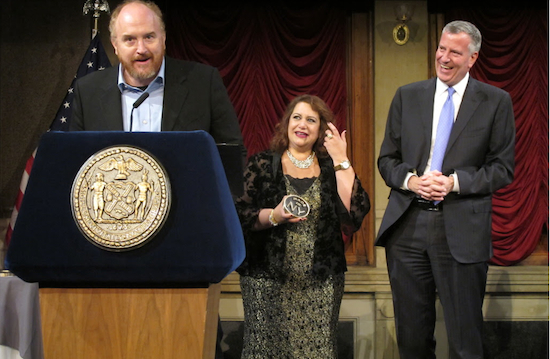‘Made in NY’ Awards celebrate record local film production

Louis C.K. addresses the audience while Media & Entertainment Commissioner Cynthia Lopez and Mayor Bill de Blasio look on. Photos by Matthew Taub
A former Williamsburgh Savings Bank served as an opulent if raucous home for this year’s “Made in NY” Awards Monday evening. The event celebrated local filmmakers, actors and industry supporters who have been part of the record level of local production within the five boroughs in recent years.

Brooklyn Boro
View MoreNew York City’s most populous borough, Brooklyn, is home to nearly 2.6 million residents. If Brooklyn were an independent city it would be the fourth largest city in the United States. While Brooklyn has become the epitome of ‘cool and hip’ in recent years, for those that were born here, raised families here and improved communities over the years, Brooklyn has never been ‘uncool’.